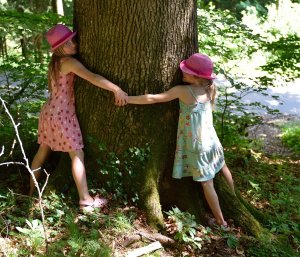
When you live in a culture where even children commit suicide, you have seriously got to ask: what is going on? Should we not ensure that we create a world in which our children not only can and want to live, but can thrive? What does it take for a child to thrive?
First of all, a child needs to be able to determine their own learning process. Children are born to learn. They learn to walk, talk and much more without us having to force them. What a child learns and when should not be determined by anyone else. Not even by parents. Yes, it is okay to introduce children to things they might not otherwise get to know, but they will not learn until they have an application for it. No one wants to learn things they have no use for, and especially not children.
A child also needs time. We are obsessed with efficiency in our culture. From a young age, children are asked to hurry up. Even when it comes to creative activities, children can’t take their time. A child needs to experience boredom regularly, or creativity will dry up. At the age of two, almost all people are creative geniuses, but hardly any as adults. Children need people around them to whom they can express their ideas. Sometimes this can be other children (older or younger), sometimes adults and sometimes elders — all are necessary for a child to grow. A diverse community is required. A child without a diverse community is orphaned.
Children need rites of passage to help them grow, which provide them with the insight that you cannot just take, which is okay for a child, but you must also give. Otherwise, we would exhaust each other and the planet. They usually cannot go through such a transition on their own. They need to be initiated by adults who have been initiated themselves. We have lost these kinds of rituals in our culture, but we urgently need to find them again.
We teach children that they need to work hard to get anywhere. I see this as a form of child abuse. Children should play. Play to learn. Playing is the ultimate way for everyone to learn, not just children. Let us not deprive them of that chance — they are only young once.
Children should not be criticised or judged. They just need space to be themselves: a unique being with unknown possibilities. Every grade, report, and diploma simplifies the complexity of a human being into a rational number or a paper stating what a person can or cannot do.
A child needs to be outside. Not in a concrete environment, but in a place where natural processes have free rein. Because it is there, where control is released,that we can learn most about life from life itself. There, we find wisdom, beauty and meaning. There, we find happiness. Or rather, happiness finds us there.
A child needs a future perspective. We are wearing the planet out, supposedly to create a better future. But how do you explain to a child that their body is full of PCBs, microplastics, lead and glyphosate? How do you explain to a child that trees need to be cut down for progress? That rivers need to be dammed for progress? That nuclear power plants, wind farms and highways are also necessary for progress? That everything that seems fast now will seem slow again in a while? That progress means everything has to be bigger, faster, smoother, thinner, lighter and higher? That beauty and love do not belong in this list and would be best forgotten?
I cannot do this. I want to tell my son that progress means we increasingly connect with everything and everyone in our environment, that we have found our way home. I want to say progress means we will have an ever healthier climate, even more biodiversity, cleaner air and cleaner water. That we no longer have to escape reality in amusement parks, Netflix and narcotics.
We invent more and more laws and regulations in the name of keeping everyone safe. We lock children up in schools and houses then sorrowfully watch them languish. We know it can be better, and we know it must be better. I have a radical idea: let us give our kids the freedom to make mistakes, dirty their clothes, lose their way, find problems, and most of all — this is the point and it cannot be learned from a book — to fall in love with the world.
Original title: Florerende kinderen, translation by Aveen Colgan
